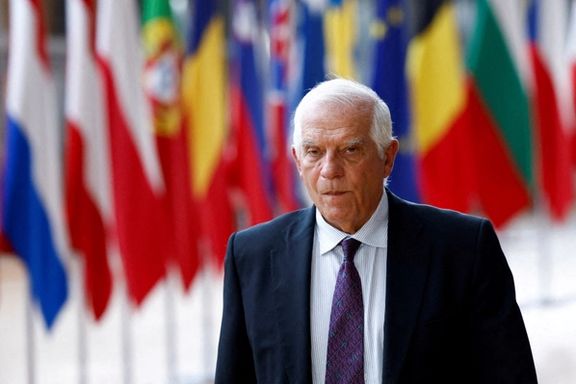EU's Borrell under fire for plan to send deputy to Iran inauguration

The European Union top diplomat's decision to send his deputy to Iran for the inauguration ceremony of the country's president-elect has angered European lawmakers.

The European Union top diplomat's decision to send his deputy to Iran for the inauguration ceremony of the country's president-elect has angered European lawmakers.
Iran and the EU have clashed over a number of issues in the last few years, most notably Iran’s nuclear program and its poor record on human rights. In recent months, the relationship has deteriorated over the European’s ongoing deliberations on the possibility of adding Iran’s Revolutionary Guards (IRGC) to the EU’s terror list.
On Friday, a senior EU official told Wall Street Journal that the EU's High Representative for Foreign Affairs, Josep Borrell, will not attend the ceremony as the ties with Iran are "at the lowest point it has ever been." Instead, Borrell's deputy Enrique Mora will travel to Tehran.
This is not the first time Borrell sends his deputy to Iran. But many vocal critics of the EU policy on Iran view the 'downgrade' as insufficient and want to see a stronger message of disapproval sent to Iran.
"We are so ready for change at the highest and some lower levels," German member of the European Parliament Hannah Neumann posted on X, in a clear reference to Josep Borrell nearing the end of his term as EU's foreign affairs chief.
Another member of the European Parliament, Bart Groothuis, reposted the Wall Street Journal's story about Mora's upcoming trip to Iran, calling the decision "unacceptable."
The two-part ceremony is scheduled for July 28th and 30th. The president-elect will first seek the official seal of approval from the Supreme Leader before being sworn in at the parliament. Iran’s state media and officials tend to underline the attendance of foreign delegations in such ceremonies to counter the argument that the country is isolated.
In his election campaign last month, Pezeshkian promised to improve Iran’s diplomatic ties and even attempt to revive the 2015 nuclear deal that fell apart when the former US president Donald Trump unilaterally withdrew from it in 2018.
It is widely known that Iran’s foreign and defense policy is decided outside the president’s office. Still, some EU officials seem to be hopeful that Pezeshkian would leave his mark and soften Iran’s aggressive posture, especially with regards to its nuclear activities and the actions of its regional proxies.
In the Wall Street Journal report Friday, a senior EU official said Iran’s incoming president appears to be “quite reasonable”, adding that the inauguration of a 'reformist' president is an important event.
Iran’s president-elect has committed his administration to the pursuit of strategic plans set by Supreme Leader Ali Khamenei, which in recent years has seen Iran getting closer to Russia and China.
Beijing and Moscow "have consistently stood by us during challenging times,” Pezeshkian said last week in an English open letter titled A Message to the New World. He blamed the US and EU for inflicting “hundreds of billions of dollars in damage” to Iran’s economy, and “untold suffering, death and destruction on the Iranian people,” mainly through sanctions.
He added he looks forward “to engaging in constructive dialogue with European countries” while warning that they “should realize” that Iranians’ rights and dignity “can no longer be overlooked."